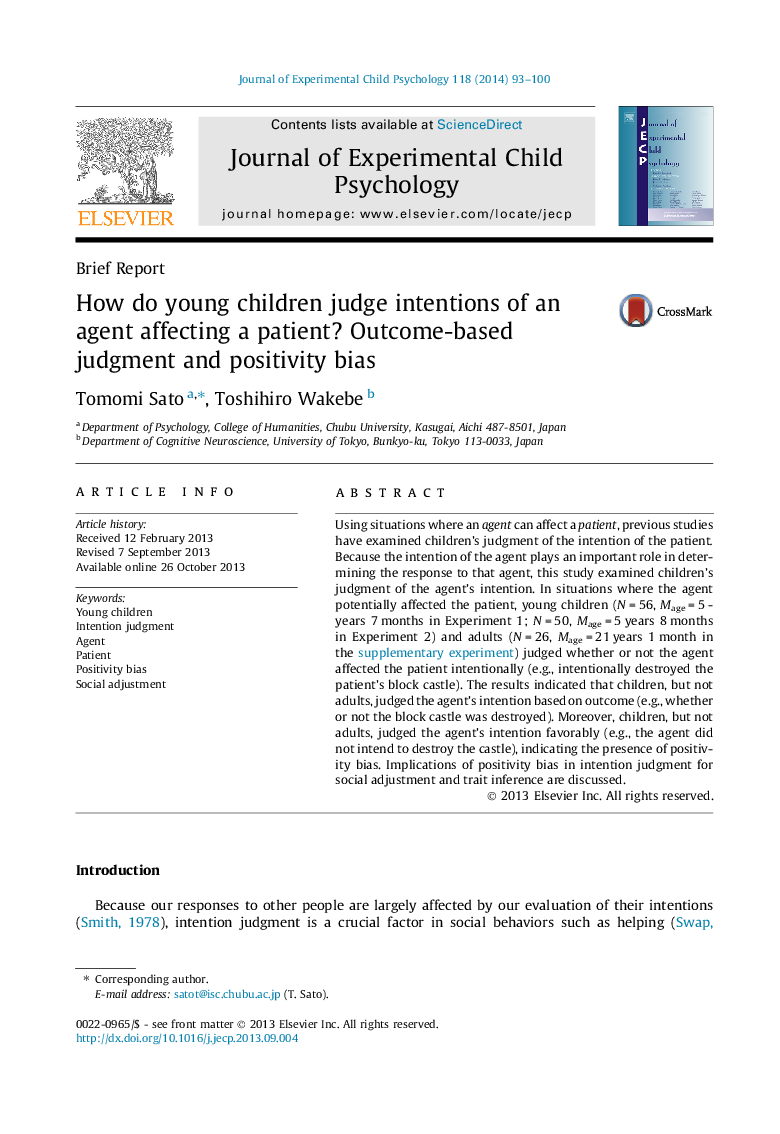| کد مقاله | کد نشریه | سال انتشار | مقاله انگلیسی | نسخه تمام متن |
|---|---|---|---|---|
| 918101 | 1473494 | 2014 | 8 صفحه PDF | دانلود رایگان |
• We examined children’s intention judgment of an agent affecting a patient.
• Children and adults judged whether or not the agent acted intentionally.
• Children’s judgments were based not only on outcome but also on positivity bias.
• This tendency was not observed in adults’ judgments.
• The bias may play a role in children’s social adjustment and trait inference.
Using situations where an agent can affect a patient, previous studies have examined children’s judgment of the intention of the patient. Because the intention of the agent plays an important role in determining the response to that agent, this study examined children’s judgment of the agent’s intention. In situations where the agent potentially affected the patient, young children (N = 56, Mage = 5 years 7 months in Experiment 1; N = 50, Mage = 5 years 8 months in Experiment 2) and adults (N = 26, Mage = 21 years 1 month in the supplementary experiment) judged whether or not the agent affected the patient intentionally (e.g., intentionally destroyed the patient’s block castle). The results indicated that children, but not adults, judged the agent’s intention based on outcome (e.g., whether or not the block castle was destroyed). Moreover, children, but not adults, judged the agent’s intention favorably (e.g., the agent did not intend to destroy the castle), indicating the presence of positivity bias. Implications of positivity bias in intention judgment for social adjustment and trait inference are discussed.
Journal: Journal of Experimental Child Psychology - Volume 118, February 2014, Pages 93–100
